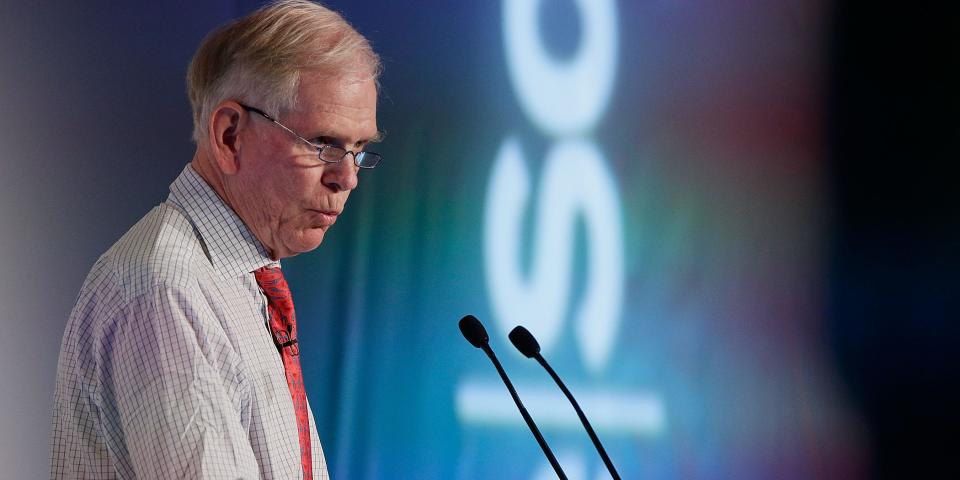Jeremy Grantham predicts the US 'superbubble' will pop, wiping out $35 trillion in stocks and housing. Here are the 11 best quotes from his new note.

Legendary investor Jeremy Grantham has said the US is in an epic market bubble that could soon implode.
He said a crash could wipe out $35 trillion of value, attacked the Fed, and provided some investment advice.
Here are the 12 best quotes from the GMO founder and market historian's latest note.
Legendary investor Jeremy Grantham said Thursday that the US is experiencing a "superbubble" in stocks, housing and commodities – and predicted that it would all soon come crashing down.
The founder of the GMO investment firm said in a new note that $35 trillion of wealth could easily be wiped out in the US alone in a long and drawn out process, slammed the Fed, and gave some investing advice.
Here are the 12 best quotes from his latest note.
The US is in a stocks, housing and commodities 'superbubble'
1. "Today in the US we are in the fourth superbubble of the last hundred years." – The others were in stocks in 1929 and 2000, and in housing in 2008, Grantham said.
2. "The equity bubble… has now been joined by a bubble in housing and an incipient bubble in commodities."
3. "In a bubble, no one wants to hear the bear case. It is the worst kind of party-pooping. For bubbles, especially superbubbles where we are now, are often the most exhilarating financial experiences of a lifetime."
It may already be imploding
4. "The final feature of the great superbubbles has been a sustained narrowing of the market and unique underperformance of speculative stocks, many of which fall as the blue chip market rises. This occurred in 1929, in 2000, and it is occurring now." - The tech-heavy Nasdaq 100 has fallen 9% year-to-date.
5. "The most important and hardest to define quality of a late-stage bubble is in the touchy-feely characteristic of crazy investor behavior. But in the last two and a half years there can surely be no doubt that we have seen crazy investor behavior in spades… especially in meme stocks and in EV-related stocks, in cryptocurrencies, and in NFTs."
The crash could wipe out $35 trillion of value
6. "When pessimism returns to markets, we face the largest potential markdown of perceived wealth in US history." – Grantham said mixing three asset bubbles together is extraordinarily dangerous, and said the S&P 500 could drop 45%.
7. "If valuations across all of these asset classes return even two-thirds of the way back to historical norms, total wealth losses will be on the order of $35 trillion in the US alone."
Grantham savages the Federal Reserve
8. "All of the economic and financial dangers that are now building up from multiple major bubbles do not appear to be considered especially dangerous by the Fed or most of its equivalents around the world."
9. "With the clear dangers of an equity bubble revealed in 2000 to 2002, the even greater dangers of a housing bubble in 2006 to 2010, and the extra risk of doing two asset bubbles together in Japan in the late 1980s and in the US in 2007, what has the Fed learned? Absolutely nothing, or so it would appear."
And finally, some investing advice
10. "Avoid US equities and emphasize the value stocks of emerging markets and several cheaper developed countries, most notably Japan. Speaking personally, I also like some cash for flexibility, some resources for inflation protection, as well as a little gold and silver."
11. "Cryptocurrencies leave me increasingly feeling like the boy watching the naked emperor passing in procession. So many significant people and institutions are admiring his incredible coat, which is so technically complicated and superior that normal people simply can't comprehend it and must take it on trust. I would not."
Read the original article on Business Insider
